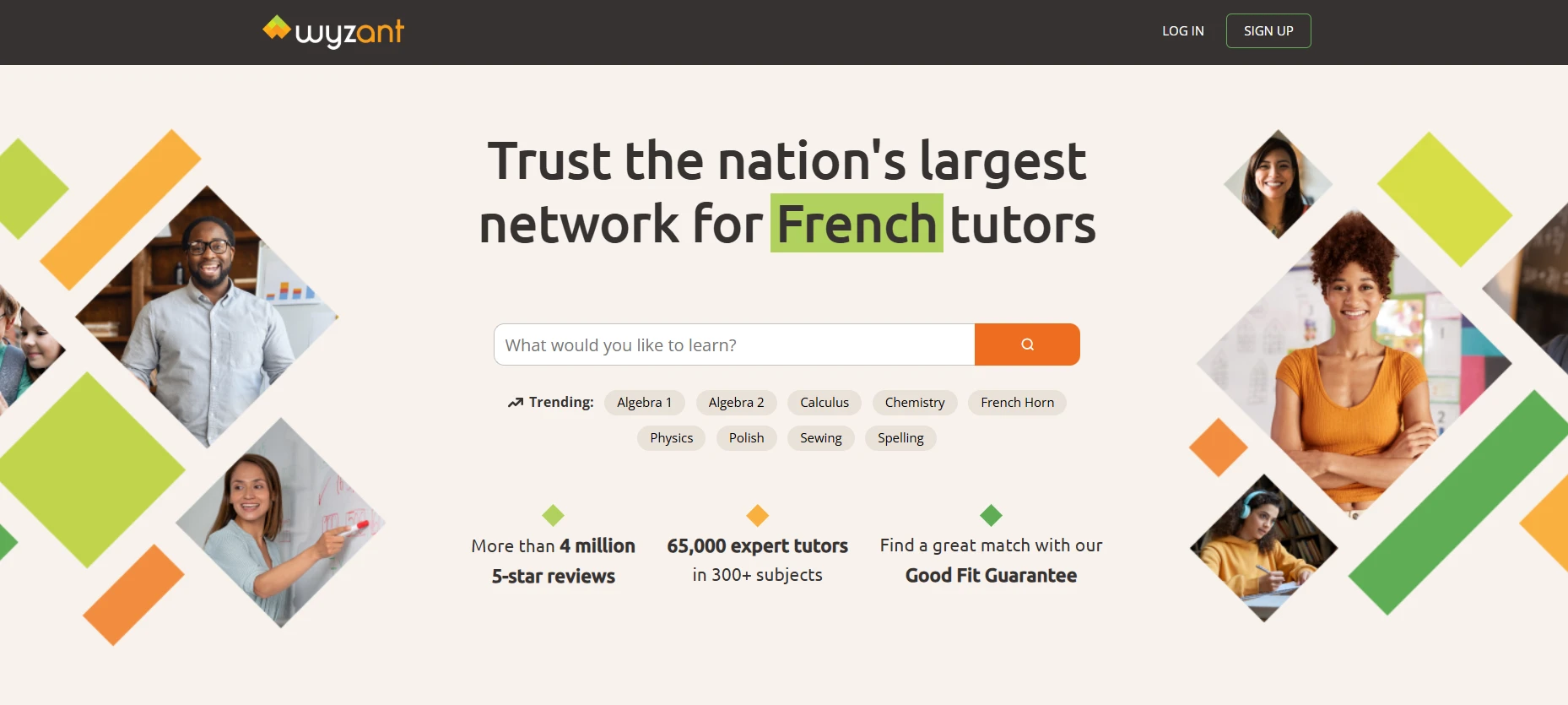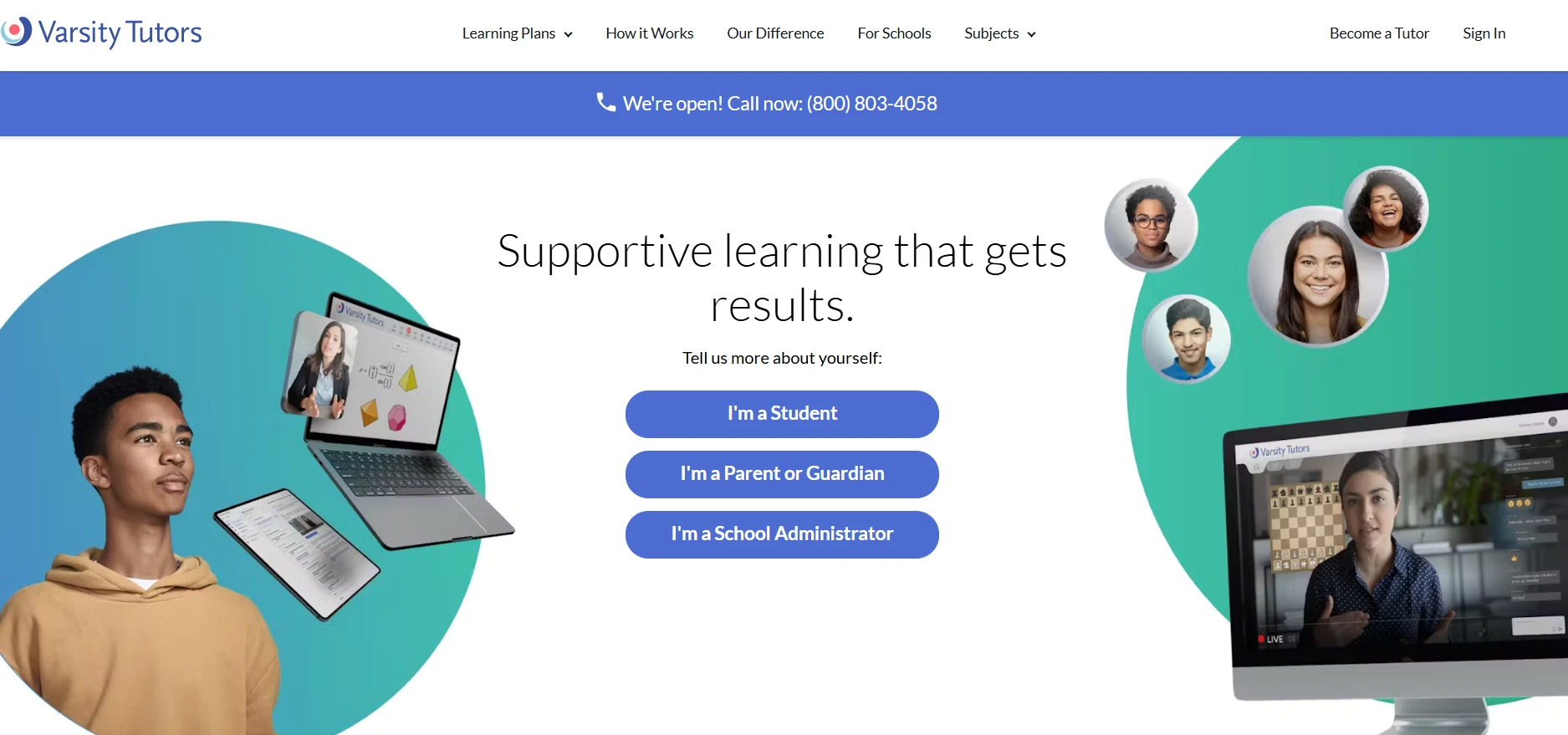Mentor Education is a London-based tutoring agency specializing in UK school entrance exams and A-levels. This article provides students and parents with insights about Mentor Education’s services, fees, and how it compares to other tutoring platforms, helping families make informed choices.

Mentor Education Reviews and Testimonials
We found very few public reviews of Mentor Education on third-party sites. On Glassdoor (for employees) Mentor has about 20+ reviews and a ~3.8/5 rating, with staff praising the supportive team. However, there are no reviews on popular consumer sites (Trustpilot, Google) to gauge parent feedback. Mentor’s own website cites high success rates (e.g. “90% of our students secured an offer from their first choice school” and highlights 5-star client testimonials.
Glassdoor (employees): ~22 reviews, 3.8/5. Tutors mention a friendly culture but note the usual small-company drawbacks (management turnover, workload).
Trustpilot / Facebook: No reviews found (no rating on Trustpilot or Facebook).
Mentor Education site: Success stories claim excellent exam results and positive parent feedback.
Is Mentor Education legit? Yes. Mentor Education is a registered UK company (Company No. 08307460). It has won industry awards (e.g. UK “Tutoring Provider of the Year” 2022/2024) and serves thousands of students, indicating a well-established reputation. We found no reports of scams or fraud. In summary, Mentor Ed appears to be a credible, award-winning tutoring service with mostly positive outcomes, though it lacks many independent customer reviews.
Mentor Education Pricing
Pricing Range
One-on-one tutoring at Mentor Education is expensive. A third-party source notes online sessions start around £80 per hour (with a one-time registration fee ~£60). For example, top tutors (often ex-department heads) may charge well over £80/hr. Mentor also offers specialized group courses: week-long holiday programs cost ~£800–£1000. These premium rates reflect Tutor qualifications (75% are certified teachers). For exact fees, see Mentor’s official pricing page.
What students say about pricing
Mentor’s fees are higher than average tutoring rates. In the UK, typical tutoring is about £40/hr, so Mentor’s ~£80/hr is steep but on par with top agencies. We found no online parent comments specifically on Mentor’s prices. In general, buyers note that specialized exam preparation services (like Mentor’s) command higher fees. Compared to industry averages, Mentor’s pricing is premium; some alternatives (e.g. Wyzant, Chegg) often offer lower rates in return for less tailored service.

Hidden costs
Mentor states “all our fees are inclusive of VAT” and advertises “no hidden fees”. However, they do charge a one-time registration fee (~£60). We saw no mention of other add-ons. If a lesson is cancelled less than 14 days before, the fee is forfeited (credit only); cancellations ≥14 days out are refunded minus a £25 admin fee. In short, aside from the registration charge, there are no surprise costs, but cancellation and processing fees do apply.
How Mentor’s pricing works
Students pay per course or session, usually upfront. Mentor uses an online booking system (via the TutorCruncher platform) requiring customers to register with a credit card. There is no recurring subscription; each booking is paid at purchase. Payment is typically made online via card when scheduling an assessment or course. Mentor does not advertise installment plans or special discounts (aside from school tutoring grants). Payment is done per lesson or bundle, with no monthly or membership fee.
Free Trial
Mentor Education does not offer a formal free trial lesson. There is no mention on their site of any free introductory session, so all paid sessions must be booked and paid in advance.
Refund policy
Mentor’s refund policy is clearly stated in their terms. If a student cancels ≥14 days before a course, they can get a refund minus a £25 admin fee. If cancelled with <14 days notice, only a future credit is given (no cash back). We found no online complaints about misleading refunds; their policy appears to be enforced as written. Thus, refunds are available but limited by the advance-notice rules and fee. No reports were found of Mentor breaking these rules, so it seems reliable.
Mentor Education Alternatives
Some families may seek alternatives to Mentor Ed due to cost, subject needs, or local availability. Major competitors include:
- Wyzant: A large US tutor marketplace. Pros: Thousands of tutors across 300+ subjects, easy online search, pay-as-you-go pricing (tutors set their own rates from about $20 to $100+/hr). Many affordable options exist. Cons: Quality varies widely, since any tutor can join; matching is DIY. It’s US-focused (though it has global online reach). In contrast to Mentor’s curated service, Wyzant offers broad choice but less structured exam prep. Wyzant tutors generally cost much less per hour than Mentor’s rates.

- Varsity Tutors: A US-based platform with live classes and tutoring. Pros: Extensive subject coverage (from primary to postgraduate), including test prep and niche courses, plus instant homework help and 24/7 availability. Tutors are vetted and students can schedule one-on-one or group lessons. Cons: Can be pricey (often $40–$80/hr) and packed with many options that can overwhelm students. Unlike Mentor’s London-focused exam expertise, Varsity Tutors is more academic/general. Varsity offers flexibility (e.g. group classes), but scheduling is done through their platform, which some find less personal than Mentor’s one-on-one matching.

- Chegg Tutors: A global online tutoring and homework-help service. Pros: Very convenient for homework help (on-demand Q&A, 24/7). Subscription plans allow unlimited tutoring, often at $20–$30/hr. Chegg covers college-level STEM, languages, etc. Cons: Not designed for long-term tutoring or UK school exams. It’s more transactional (connect, ask a question). Quality can vary; mentors may not focus on exam strategies. Chegg’s model is very different from Mentor’s personal tutoring: it’s cheaper and more flexible, but less specialized in raising grades over time.

- My Engineering Buddy (MEB): A global STEM tutoring platform (based in India). Pros: Specializes in engineering, math, and advanced science help, available 24/7 online. Tutors are often engineering graduates from top universities. MEB serves students in the US, UK, Canada, Australia, Gulf, etc., so it has broad reach. It offers pay-as-you-go sessions and is generally more affordable per hour than Mentor. Cons: Smaller company, so fewer subjects outside STEM and shorter track record. Compared to Mentor, MEB is heavily tech-focused and caters to college-level and advanced high school STEM, whereas Mentor targets school-age exam prep. Many MEB users praise the easy sign-up and helpful tutors: one student said a physics tutor “makes tough problems easy to understand” and another noted the interface was straightforward with “explanations extremely easy to grasp”. This highlights MEB’s strength in clarifying complex topics.

- Tutor.com: An online tutor portal (owned by the Princeton Review). Pros: Offers homework help across many subjects 24/7, and has affordable monthly plans. Useful for students needing quick help with assignments. Tutors are verified. Cons: Focused on K–12 and college core subjects; no specialized UK exam prep. Sessions can be short. Pricing is lower than Mentor, but it doesn’t provide the one-on-one match or exam strategies Mentor offers.

In summary, alternatives like Wyzant, Varsity Tutors or Chegg offer more flexibility or lower prices, but often at the cost of the personalized, expert matching that Mentor Education provides. My Engineering Buddy stands out for advanced STEM support. Students should weigh pricing and specialization (e.g. UK exam focus vs global STEM help) when choosing.
How Mentor Education Works
For Students
Students start by contacting Mentor Education (via the website or phone) to discuss needs. The student (or parent) registers for a free consultation. An account is created on Mentor’s Tutoring platform. Mentor then matches the student with an appropriate tutor from their pool of vetted teachers. Sessions are scheduled in advance according to the family’s and tutor’s availability. Mentor conducts lessons either in person (in London or home tutoring) or online via tools like Zoom with shared whiteboards. Online classes can even be recorded for review. Bookings are made per session or course through the platform; students pay upfront as they schedule.
For Tutors
To become a tutor with Mentor, candidates apply on the TutorCruncher portal. Mentor seeks experienced educators, so applicants generally need a relevant degree and at least two years teaching or tutoring experience. Many mentors are current or former school teachers (often heads of department). Prospective tutors submit their CV and credentials via the site’s “Apply Now” link.
If accepted, tutors create a profile on the platform (with background checks and qualifications verified) and agree to Mentor’s terms. Once on board, tutors can offer face-to-face or online tuition at the rates set by Mentor. Earnings depend on Mentor’s pay schedule after commission. (Mentor handles billing; tutors do not set their own prices.) Interested tutors visit Mentor’s vacancies page or contact Mentor directly through the “Apply Now” link.
FAQs
Can tutors set their own fees, or are rates fixed? Tutors do not set their own hourly rates. Mentor determines the fees, and tutors invoice the full amount as income, then pay Mentor’s commission.
How much can a tutor expect to earn per hour? Mentor’s policy isn’t public, but tutors typically receive a portion of the student-paid rate. For example, if a student is charged £80/hr, the tutor might earn a few tens of pounds after Mentor’s share (the exact split isn’t disclosed). No official hourly pay rates are published.
How many hours of work can a tutor get per month? It varies. Demand depends on subjects and time of year. During exam seasons (summer, winter breaks), tutors may get many hours. Other times, it can be unpredictable. There is no guaranteed minimum; some tutors report a few sessions per week, others more if their expertise is in high demand.
Is it easy for tutors to get students? As a boutique agency, Mentor assigns students to tutors who fit the need. If you meet their criteria (strong qualifications, relevant subjects), Mentor may refer clients to you. However, competition is stiff due to high qualification standards. New tutors may have to build up a track record before getting steady clients.
Tips for tutors to attract more students: Highlight strong credentials and exam results in your profile. Show flexibility in scheduling. Mentors likely appreciate specialized skills (e.g. senior examiner experience) and good communication. Positive testimonials from past students (even outside Mentor) can help. Being proactive and responsive to Mentor’s coordination also improves chances of repeat referrals.
What do tutors like about Mentor Education? Tutors often mention the positive environment and supportive colleagues. One Glassdoor reviewer noted the “company culture…very good…supportive and nice”. Many enjoy working with motivated students on challenging material and appreciate the professionalism. The structured approach (clear lesson plans, tutor training) is also a pro.
What tutors do not like about Mentor Education? Some tutors mention minor drawbacks such as occasional scheduling complexities or administrative tasks. As a small agency, communication can sometimes be slower or policies rigid (e.g. strict cancellation rules). A few reviews hint at management changes over time. Overall, no major consistent complaints are public, but expectations about availability and pay should be managed.
Company Information
Mentor Education was founded in 1981 and is based in London, UK. It was started to help children prepare for entrance exams to private schools and has since expanded to cover all school levels. Mentor’s team is made up of educational professionals (principals and teachers) who oversee its programs. They claim a mission of boosting student confidence and achievement through personalized tuition (e.g. “we’ve helped over 90,000 pupils”). Mentor operates mainly in the UK, especially London, but offers online tutoring for out-of-area clients as well. It works with schools on tutoring grants and serves primarily the UK market (with some international clients for “British curriculum” tutoring).
Mentor’s services include one-on-one tutoring and small group courses (holiday workshops, mock exams) for school exams (7+, 11+, GCSE, A-level). They cover core subjects: English, Math, Biology, Chemistry, Physics, as well as languages and humanities. Unique features include rigorous tutor vetting (all tutors have degrees and teaching experience), customized learning plans (ILPs and progress reports), and the option to record online lessons. The company emphasizes quality and outcomes over low cost. Mentor’s tutors are often from top schools (ex-heads or examiners).
USP of Mentor Education
- Highly qualified tutors: no undergraduate tutors; many are senior teachers or heads of department, ensuring expert instruction.
- Proven success rates: the company boasts high exam results (e.g. 90% first-choice offers), which suggests their tutoring strategies work.
- Comprehensive programs: they offer not just tuition but full learning plans and small-group courses (e.g. holiday programs), giving structured support beyond single lessons.
- Awards and reputation: winner of industry awards (e.g., Tutoring Provider of the Year 2022/2024), confirming their standing in the education sector.
- Online learning tools: use of Zoom and whiteboard tech allows lesson recording and interactive sessions, which is appreciated by students.
Mentor’s promotional claims (highly vetted tutors, strong results, personalized learning) seem largely genuine. We saw many tutors with teaching credentials, and the company’s success metrics support their focus on results. User reviews (where available) generally affirm the quality, so the USP promises are mostly fulfilled.
Drawbacks of Mentor Education
- High cost: The intensive programs and expert tutors come at a premium (e.g. weekly courses ~£1,000), which may be unaffordable for many families.
- Limited focus: Strong emphasis on UK entrance exams means fewer resources for other curricula (e.g. U.S. SAT/ACT prep) or for older students.
- No free trial or guarantee: There’s no advertised trial lesson, and cancellation/refund policies are strict which could deter some customers.
- Scheduling constraints: Tutors work in UK hours; late-night or 24/7 help isn’t available, unlike some global platforms.
- Small company scale: As a niche London agency, they have fewer tutors overall (≈250) compared to giant platforms, which can limit choices.
Comparison with My Engineering Buddy
My Engineering Buddy (MEB) excels in areas where Mentor does not. MEB is truly global (serving US, UK, Canada, Australia, Gulf countries) and operates 24/7 online, while Mentor is London-centric. MEB specializes in advanced STEM and engineering subjects for college/high-school students, whereas Mentor focuses on school exam prep.
In terms of pricing, MEB generally offers lower rates with flexible pay-as-you-go payment, contrasting Mentor’s high fixed fees. Student feedback highlights MEB’s strengths: one review noted an MEB physics tutor “makes tough problems easy to understand”, and another praised the easy sign-up and clear explanations. These testimonials emphasize MEB’s clarity and user-friendly service. In summary, MEB provides strong support for challenging math/engineering topics and flexible global access, making it a good choice for students needing advanced technical help beyond Mentor’s UK-focused offerings.
Customer Support and Policies
Mentor Education provides customer support mainly via phone and email (London office hours). Response times are not publicized, but as a dedicated service they are generally prompt during weekdays. They do not have 24/7 chat support. Mentor’s refund and cancellation terms (credit or partial refund with fees) are clearly stated. By contrast, My Engineering Buddy offers 24/7 online support and instant tutor matching via chat, which some users find more accessible. In our view, Mentor’s support is solid but limited to traditional office hours, whereas MEB’s around-the-clock model is an advantage for international students.
Global Reach and Localization
Mentor Education is primarily tailored to the UK market – its lessons follow British curricula and exam formats. It does offer online tutoring worldwide, but its content (e.g. 11+ and GCSE prep) is UK-specific. The platform and instructors use English, with some foreign languages taught in a UK context. There is no mention of multilingual support or regional localizations. By contrast, MEB explicitly serves multiple countries (US, UK, Canada, Australia, Middle East)and offers tutors familiar with various educational standards. In summary, Mentor is best for English-speaking students in or familiar with the UK system, while MEB has broader language and regional accessibility.
Mentor Education’s Future Plans
No public information was found on Mentor Education’s specific future initiatives. They have not announced any AI tutoring tools or tech innovations as of now. It is possible they may continue to expand online tutoring offerings or school partnerships. For instance, they already participate in government tutoring programs (like the School-led Tutoring Grant) and may build on that. Other likely plans could include adding more online courses or subjects and keeping up with edtech trends. But without official statements, we could not confirm any concrete future plans.
FAQs about Mentor Education
How does Mentor Education compare to My Engineering Buddy? Mentor Ed is a traditional UK-based tuition agency focused on school-level exam prep. My Engineering Buddy is an online STEM tutoring platform serving multiple countries 24/7. Mentor’s fees are higher but tutors are UK exam specialists, while MEB covers a broader set of engineering and math topics at more flexible hours.
What levels/ages does Mentor Education tutor? They tutor a wide range: from very young children (4+ programs) to secondary school (11+), up to GCSE (age 16) and A-level (18). They also offer “International” support, but primarily in the UK curriculum.
Where are lessons held? Most lessons occur in London (in their center or student’s home). However, they also offer online tutoring worldwide via video calls (Zoom with shared whiteboard).
Are lessons recorded? Yes. Mentor’s platform uses Zoom which allows recording. Students can re-watch the lesson and the shared notes later.
Are tutors DBS-checked? Yes. Mentor says all tutors undergo DBS (background) checks and screening. Only tutors with degrees and often teaching certification are accepted.
How do I book a lesson? You contact Mentor via their website or call, discuss needs, and then use their online booking system. Payment and scheduling are done through the platform; details are sent by email after you enroll.
What is the difference between 4+, 7+, 11+ programs? These refer to age levels for London entrance exams: 4+ is an early prep course (age 4), 7+ and 11+ prepare children for entry at ages 7 and 11 respectively (to top prep schools). Mentor offers specialized tutoring for each stage.
Do they offer any discounts or trials? No. We found no mention of free trials or discounts (other than group pricing for holiday courses). Their pricing is fixed as advertised, with refunds per their cancellation terms.
Conclusion
Mentor Education stands out for its highly qualified tutors and exam-focused programs in the UK. Its strengths are personalized attention and proven results. Its weaknesses are high cost, UK-centric focus, and lack of 24/7 availability. By contrast, My Engineering Buddy offers broad STEM help, lower pricing, and round-the-clock online support. For students needing intense exam prep under expert UK tutors, Mentor is strong; for global advanced subject tutoring, My Engineering Buddy is a compelling alternative.
******************************
This article provides general educational guidance only. It is NOT official exam policy, professional academic advice, or guaranteed results. Always verify information with your school, official exam boards (College Board, Cambridge, IB), or qualified professionals before making decisions. Read Full Policies & Disclaimer , Contact Us To Report An Error

